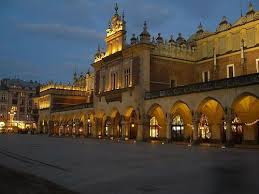That matters to me particularly because we now live in Spain, land of our Brexit exile. Others, though, might also find much of relevance in the difficult road that got us here, littered as it was with obstacles, many of them self-inflicted.
 |
| Pedro Sánchez addresses the Cortes |
Spain has its first coalition government since the end of the Franco dictatorship and the restoration of democracy in 1978. That brings it into line with most countries in Europe, where government always requires negotiation between parties and compromise to reach an agreement that commands broad support. It’s not the case in Britain, of course, where Members of Parliament are still elected by simple majorities in individual constituencies. As a result, parties with minority support nationally can command a huge majority in Parliament. As is the case today.
I’m not sure that this leads to better government.
Pedro Sánchez, now the confirmed Prime Minister of Spain after holding the role in an acting capacity since last April, and leader of the centre-left Spanish Socialist Workers’ Party (PSOE), has agreed a joint programme for progressive government with Pablo Iglesias, of the anti-austerity, harder-left Unidas Podemos Party (UP). That has kept the right well away from power, even though the far-right Vox now has a major parliamentary presence.
You read that right. A joint programme for progressive government. And the hard right out of power.
How many, in Britain, the United States, Poland, Hungary, Turkey or Brazil would give their eye teeth to have such a government? And how many, particularly in Britain, the United States, Poland, Turkey or Brazil would like to see the far right well away from government?
So, now the negatives.
The Spanish left nearly didn’t pull the trick off, and its worst enemy was itself. As in Britain and the United States especially.
That joint programme between PSOE and UP was something that could have been agreed months ago. Say, straight after the General Election in April, which left the PSOE as the biggest single party in the Spanish Parliament – the Cortes – with 123 seats, while UP had 42. PSOE was up significantly, while UP had lost seats, but at least between them, they had 165 MPs, just 11 short of the 176 needed for a majority in the 350-seat Cortes.
They couldn’t reach agreement. After six months of negotiation, new elections had to be called in November. Both parties lost seats, three in the case of the PSOE, though it was still the biggest party in Parliament, while UP lost seven. Now their task had become far harder, since they’re now 21 behind the magic number for a majority.
Far worse still was the surge in support for the quasi-fascist Vox, which shot up from 24 to 52 seats to become the third biggest parliamentary presence.
The PSOE-UP failure to compromise before the November election meant that when they finally did, the two parties of the left were working from a weaker position, and against a far more vigorous opposition. Note and learn, British Labourites or American Democrats: you risk it all when you decide to dig your heels in and refuse to budge on principle. Insisting on doing it all may leave you unable to do anything at all. The price of intransigence can be a Trump or Boris government.
Sánchez has at least avoided that fate, but by the tightest of margins. He couldn’t win his investiture on Sunday (yes, Spanish MPs can work on Sundays) when an absolute majority was required, in the first vote; on Tuesday however, with the bar lowered to requiring simply more Yes votes than Noes, he squeaked through, by just two votes with eighteen abstentions.
Those abstentions were won through hard negotiation. Sánchez had to make agreements with eight parties, covering 313 different commitments, to secure those abstaining votes. Not all those commitments are compatible with each other. Government, with so much to deliver to keep minor parties at least neutral, and up against such a powerful right, isn’t going to be easy.
This is particularly true in the specific circumstances of Spain. Some of the commitments Sánchez has had to make concern the status of Catalonia and its desire for independence. That’s something he can’t grant and retain his support in the rest of Spain; it’s going to be challenging to give the Catalans enough, short of independence, to keep Tuesday’s abstainers in line.
With a powerful and ferocious right-wing Opposition, he and Iglesias are going to have torrid time implementing their programme. It’s going to be enthralling to watch. I’m at least glad they have the opportunity to try – after the crushing defeat of the British left in December, being able to do as much as Sánchez can in Spain seems a distant dream.
There were some good moments in the investiture debate.
One of the most moving was the standing ovation offered to Aina Vidal, who turned up to vote despite undergoing aggressive treatment for cancer.
 |
| Aina Vidal stands to acknowledge the ovation for her presence |
In Britain and the US, I can’t help feeling that we’re all children of the same deeply disrupted climate system, and tributaries to the same traffic jams.
Maybe the Spanish example can help us towards a more encouraging future.






